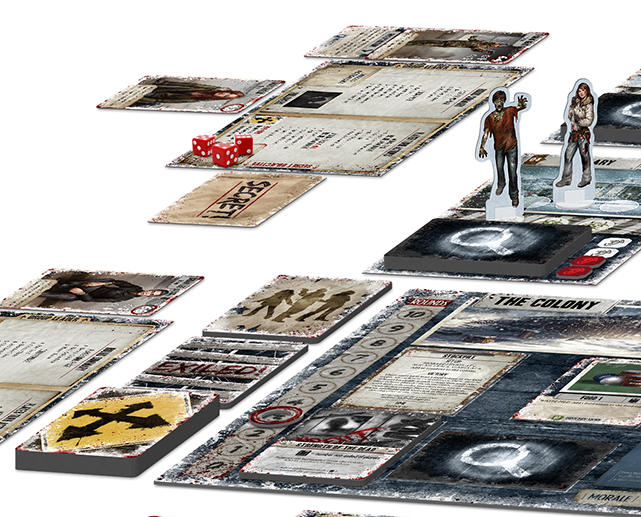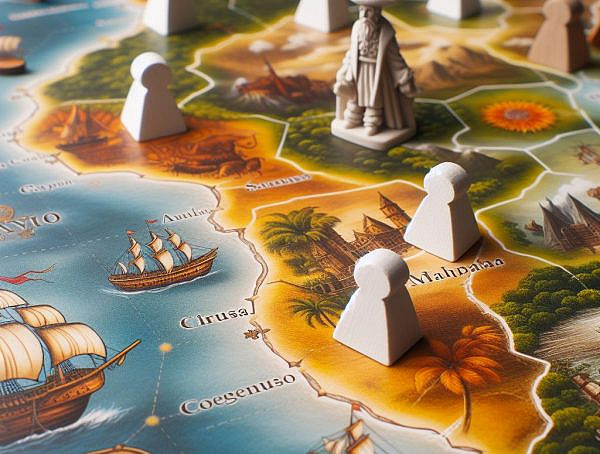Failing together is fun.
Douglas Maynard and Joanna Herron argue in their article titled “The Allure of Struggle and Failure in Cooperative Board Games”, published in Analog Game Studies, that victory may not be the most important goal in cooperative board games. Instead, it seems that players find plenty of enjoyment in failure when it happens together with other people.
For the article, the authors played Hanabi, a cooperative card-game that involves restricted player communication, a Lord of the Rings board game where the players try to destroy the One Ring as hobbits, a zombie survival game called Dead of Winter, and the firefighter game Flash Point: Fire Rescue. The play sessions revealed that lower difficulty levels result in lesser immersion and investment, while adding difficulty had an opposite effect. They often realized in advance they would probably lose soon, which resulted in stronger tension and improved teamwork. The authors also note that tension usually lasts longer in board games than in digital ones because of longer playtimes.
Cooperative board game players seem to want to lose more often than win, and one possible explanation for this is that victory is just one of the goals for playing. Other goals may be things such as socializing, relaxing and creating memories. Facing failure together often results in humor, camaraderie and story-telling, and the focus is on the group instead of the individual. The story-telling aspect is even a design choice in some games, such as in Matt Leacock’s Pandemic, which aims to give the players freedom to create their own narratives during play.
Failing with friends often results in feelings of connectedness, and a post-game analysis session is common especially after a loss. Board games also allow for pauses to discuss situations, and exchanging ideas with others may result in strategies any one player might not have come up with alone. While players are responsible for their actions during their turns, moves are rarely made without collective decision-making. Failure is not simply a way of learning how to win in a game, but allows for comedy and shared emotions.
Some mechanics may affect the fun in failure more than others. For example, one player in Dead of Winter may be a traitor, which may prevent that particular player from taking part in the storytelling and joking concerning a loss. Some games also have a scoring system which may suit cooperative play very well. In the Lord of the Rings board game the scoring tells the players how close they were to succeeding. Naturally, the personal relationships of the players also affect how failure is perceived, as closer friends will share emotions more easily.
The authors conclude that this idea of enjoyment in failing together might be useful in education, as well, as the surrounding culture often puts emphasis on winning instead of collective experience.
Authors: Douglas Maynard & Joanna Herron
Published in: Analog Game Studies, May 2, 2016
Original article: http://analoggamestudies.org/2016/05/the-allure-of-struggle-and-failure-in-cooperative-board-games/
Featured image: Plaid Hat Games: Dead of Winter https://www.plaidhatgames.com/images/u/CR001_Game_Set-up_005.jpg
You might also like
More from Game Research Highlights
How do you want to do this? – A look into the therapeutic uses of role-playing games
Can playing RPGs contribute positively to your wellbeing? A recent study aims to find out how RPGs are being used …
Eldritch horrors and tentacles – Defining what “Lovecraftian” is in games
H.P. Lovecrafts legacy lives today in the shared world of Cthulhu Mythos and its iconic monsters. Prema Arasu defines the …
Are Souls Games the Contemporary Myths?
Dom Ford’s Approaching FromSoftware’s Souls Games as Myth reveals the Souls series as a modern mythology where gods fall, desires …
















